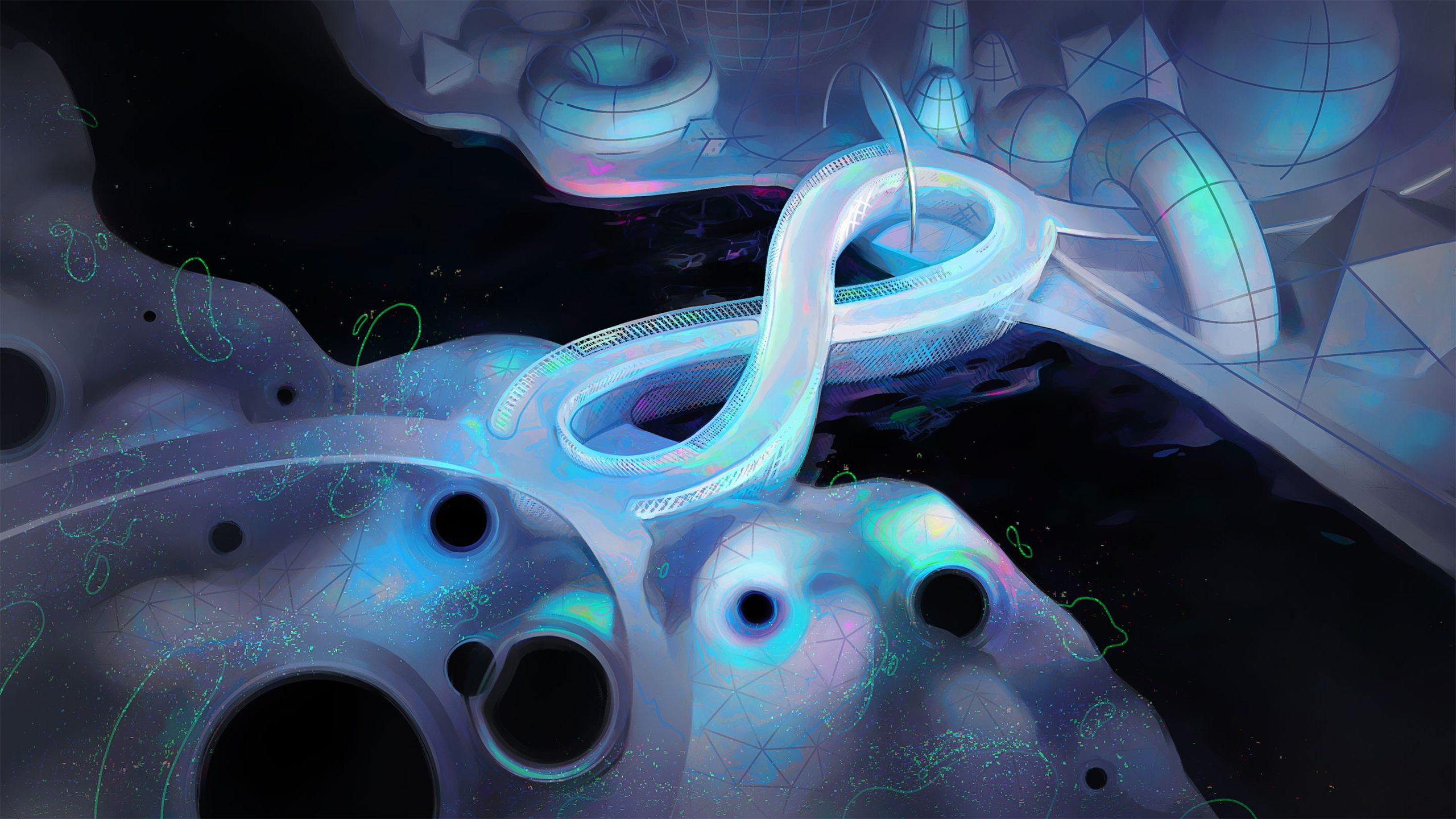For generations, people have wondered why some individuals seem luckier than others. Whether it’s getting the right opportunity at the right time or avoiding a negative situation by pure chance, “luck” has always been a topic of debate. Traditionally, luck is defined as randomness — a simple roll of life’s dice with no deeper meaning behind it.
But modern science, especially quantum physics, has added new layers to the conversation. Instead of treating luck as something mystical or supernatural, researchers are examining how probability, perception, decision-making, and environmental patterns might shape our experience of good or bad fortune. While quantum mechanics does not prove that thoughts influence reality, it introduces concepts that challenge our intuition about how outcomes unfold in the physical world.
This article explores how quantum theory, cognitive science, and behavioral research intersect to give us a more nuanced understanding of what we call “luck,” all while staying within verified scientific boundaries.

Understanding Luck Through the Lens of Modern Science
Before diving into quantum physics, it helps to understand how science defines luck. In research, “luck” often refers to:
-
The outcome of probabilistic events
-
Patterns that are not immediately obvious to the observer
-
Situations shaped by complex variables that look like chance
-
Human interpretation of random or partially predictable events
What feels like luck may sometimes be the result of subtle factors we do not consciously notice: preparation, timing, social networks, environment, habits, or rapid split-second decisions.
However, quantum physics provides another perspective — not because it proves that luck is controlled by the mind, but because it reveals that the physical world behaves in ways that challenge classical ideas of certainty.

Quantum Physics: A World Built on Probabilities
Quantum mechanics studies the smallest building blocks of reality — particles such as electrons and photons. These particles do not behave like solid objects. Instead, they exist in a state of probability, meaning their properties cannot be predicted with certainty before they are measured.
Key ideas relevant to the discussion include:
1. Probability at the Quantum Level
Particles can take multiple paths or states at once, described mathematically through wave functions. This does not mean humans control outcomes; it means uncertainty is built into nature itself.
2. The Observer Effect
In quantum mechanics, measuring a particle can influence what state it ends up in. This does not imply that human thoughts change reality, but rather that the act of measurement in scientific experiments affects small-scale systems.
3. Quantum Entanglement
Two particles can become correlated in such a way that measuring one instantly provides information about the other, no matter the distance between them.
This phenomenon is well-documented but does not demonstrate mental influence — it demonstrates how deeply interconnected physical systems can be.
These principles inspire questions and metaphors about luck, decision-making, and outcomes — not because they prove a link, but because they challenge the idea that the universe is completely mechanical and predictable.

Why People Connect Quantum Physics With Luck
As quantum theory becomes more widely known, many people try to relate it to personal experiences, including the idea of luck. The reasoning often comes from the following themes:
1. Uncertainty Shapes the Universe
Quantum physics shows that not everything is predetermined at the smallest scales. Some interpret this as a reminder that life itself is full of branching probabilities, many of which we don’t fully grasp.
2. Small Changes Can Have Large Effects
In complex systems, minor differences in initial conditions can create dramatically different outcomes — a concept studied in chaos theory, not quantum mechanics. This can feel like luck in daily life.
3. Human Perception Creates Patterns
The brain is wired to find meaning. When events align in a beneficial way, we interpret them as luck. When they don’t, we see randomness.
Science does not confirm that consciousness alters quantum events in everyday life, but it does show that our interpretation of events strongly influences how lucky we believe ourselves to be.
The Psychology of Perceived Luck
Research in psychology has uncovered that “lucky people” often share behavioral traits that increase the likelihood of positive outcomes. These include:
-
Staying open to new opportunities
-
Paying attention to surroundings
-
Maintaining a positive outlook
-
Making flexible decisions
-
Building strong social connections
-
Responding calmly under pressure
These behaviors can create more favorable outcomes, which feel like luck even when they result from habits rather than chance.

1. Pattern Recognition
Humans naturally detect patterns. We notice coincidences more when they benefit us, which makes situations feel meaningful.
2. Selective Attention
People who expect good outcomes tend to notice more helpful opportunities. This does not change reality — it changes awareness.
3. Risk and Reward Balance
“Lucky” individuals often make balanced decisions rather than avoiding risk entirely. This increases the chance of positive results.
Together, these factors create a psychological environment where luck appears abundant.
Quantum Physics as a Metaphor for Possibility
While quantum mechanics does not demonstrate that thoughts shape reality, its principles inspire new ways to think about choice and possibility:
-
The future exists as many potential outcomes, not one fixed path
-
Small changes influence the trajectory of events
-
Observation in science determines which information becomes meaningful
These ideas provide useful metaphors for how we navigate life. They encourage a mindset of curiosity, awareness, and intentional decision-making — qualities associated with people who report feeling consistently lucky.
Luck as Alignment With Opportunities — Not Random Magic
Framing luck as “resonance” or “alignment” does not require supernatural explanations. Instead, it highlights scientifically grounded principles:
-
When people pay attention, they see more opportunities.
-
When they make thoughtful decisions, they influence outcomes.
-
When they remain aware of their environment, they reduce negative surprises.
-
When they maintain focus, they direct energy and effort more effectively.
This perspective turns luck into something partially influenced by mindset and behavior rather than something purely random.
What Science Can Actually Say Today
Based on current research:
-
Quantum physics reveals the universe is filled with uncertainty and probability.
-
Psychology shows that perception and behavior influence how we experience luck.
-
Cognitive science demonstrates that expectations guide decision-making.
-
No evidence confirms that thoughts control quantum events in everyday life.
However, science does support the idea that mindset, awareness, and choice shape outcomes far more than we realize.
Conclusion: Luck May Be Less Random Than It Seems
Quantum physics hasn’t proven that human intention controls probability — but it has opened the door to rethinking how we understand the nature of possibility. Combined with psychology and behavioral science, a clearer picture emerges:
Luck may not be magic, but it also isn’t entirely random.
It reflects how we engage with the world, how we interpret events, and how we act in moments of opportunity.
In this sense, the universe is not a rigid machine. It is a landscape of shifting possibilities, influenced by awareness, behavior, timing, and perception.
When people stay focused, curious, and attentive, they often experience more positive outcomes — not because reality bends to their will, but because they are aligned with the opportunities around them.
Luck, then, becomes less about chance and more about connection:
a connection to possibility, to awareness, and to the subtle patterns that shape our everyday lives.



